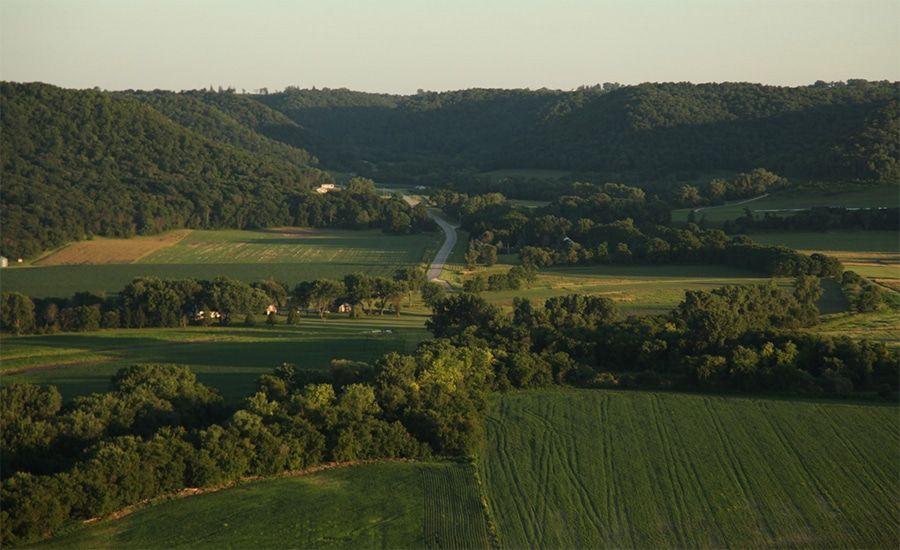COMMUNITIES
COMMUNITIES

Iroquois Valley takes a systems-based view of soil health management. Our approach recognizes soil is a living system and that managing that system well has environmental as well as socio-economic benefits. Organic farming systems that work to improve soil health have positive economic impacts for both the farms and the communities in which they are embedded.
BENEFITS TO COMMUNITIES
We support farmers’ transition to organic agriculture, knowing organic agriculture can bring economic vitality to a community. Counties in organic hotspots – i.e. counties with a statistically high number of organic operations with neighboring counties that also have a statistically high number of operations – have poverty rates that drop 1.3% and median household incomes that increase by $2,094.
The elimination of harmful pesticides through the adoption of organic agriculture helps protect the water supply and the health of aquatic species in streams and oceans. The integration of soil health practices into organic systems, such as cover crops and crop rotation have benefits to the farm such as improved water infiltration and reduction of soil loss.
The implementation of soil health systems is not only beneficial to the farm but also to surrounding communities downstream. Practices that increase water infiltration in the field could decrease the amount of surface water flowing into nearby streams and rivers – thus mitigating flooding potential – while increasing recreational opportunities in nearby rural and urban communities. Soils with increased soil organic matter could slow water contamination, which has a major impact on local drinking water supplies.
IN SUMMARY
Organic agriculture, and more broadly, an investment in soil health, improves the returns and resilience of a farm operation and brings economic benefits to the community at large. Iroquois Valley is committed to supporting its farmers’ long-term land stewardship through organic management.
Iroquois Valley Farmland REIT is a triple bottom line company that supports its farmers for their direct environmental, economic, and social impacts.
QUICK FACTS
-
Areas with a large number of organic farms are associated with an increase in median household income.
-
Adopting multiple soil health principles can improve farm resilience to extreme weather events.
-
Adopting organic agriculture can increase farm revenues within the first year of certification.
Read more on Soil Health
Iroquois Valley’s farmers recognize that that soil is a living system and they have an important role in improving and keeping it healthy. Healthy soils enable healthy plants, animals, and humans. Through practices such as diverse crop rotations, cover cropping, and integrated livestock Iroquois Valley Farmers work to mimic the processes of the natural environment without synthetic inputs. Organic farming systems are prohibited from using synthetic inputs.
It is vital that agricultural production does not continue to degrade soil and pollute waterways. Despite billions of dollars offered through voluntary cost-sharing programs, farmer adoption of conservation and soil health improving practices remains low. By focusing on organic farming, Iroquois Valley supports a network of farmers to do just that through a variety of approaches.

